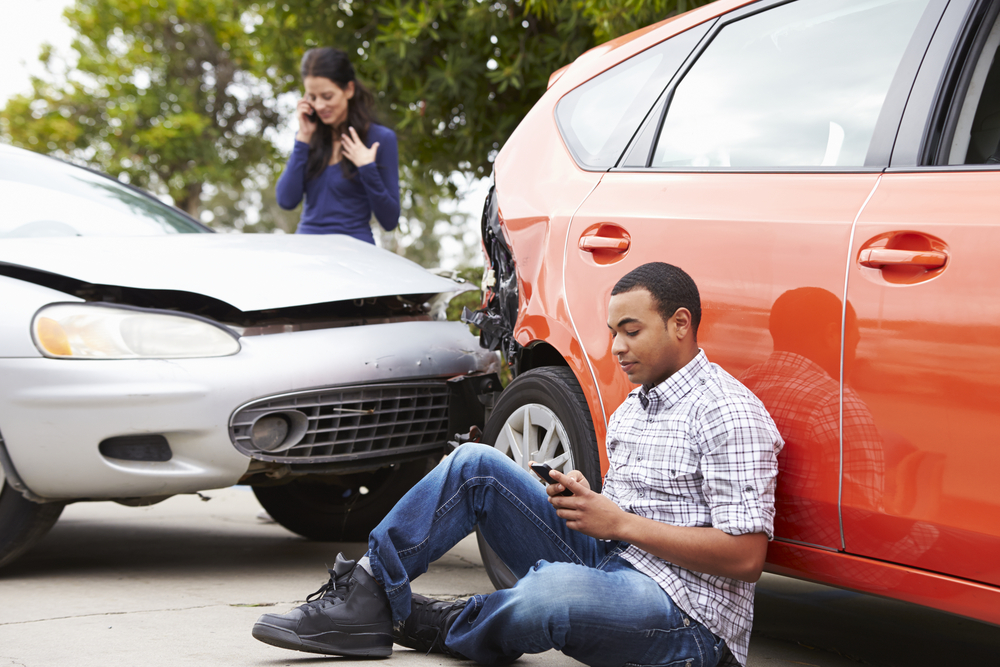rideshare injury lawyer introduces a world where legal expertise meets the fast-changing environment of rideshare transportation, giving you the support and clarity needed when accidents happen. Whether you’re a passenger, a driver, or even a bystander, understanding your rights after a rideshare accident can make all the difference.
As rideshare services become more common, the number of injury cases involving these platforms has also risen. Navigating the aftermath of a rideshare accident is not always straightforward—insurance policies, company procedures, and state laws can impact your ability to recover compensation. This guide breaks down what makes rideshare injury cases unique, how legal representation can help, and what you should know if you’re ever involved in such an incident.
Overview of Rideshare Injury Cases: Rideshare Injury Lawyer
Rideshare injury cases have become increasingly common as services like Uber and Lyft have grown in popularity. These cases involve individuals who are injured while using or interacting with rideshare vehicles, whether as passengers, drivers, or third parties on the road. Understanding the specific nuances of these incidents is essential, as they differ in several critical ways from traditional car accidents.
Definition and Common Scenarios in Rideshare Injuries
A rideshare injury refers to any physical harm sustained by a person in an accident involving a rideshare vehicle, such as those operated by Uber, Lyft, or similar platforms. Common scenarios include passenger injuries during a trip, pedestrian accidents involving rideshare vehicles, or collisions between rideshare cars and other vehicles. Situations may also arise when a rideshare driver is injured while waiting for a ride request or en route to pick up a passenger.
Key Differences Between Rideshare and Traditional Car Accidents
Rideshare accidents are distinct from regular car accidents due to the unique legal and insurance frameworks applicable to commercial ridesharing. These cases often involve different liability determinations, insurance policies, and reporting requirements compared to private vehicle accidents.
- Multiple insurance layers may apply, including personal and company-provided coverage.
- Determining liability can be more complex, especially if the driver is logged in but has not yet accepted a ride.
- Company policies and terms of service may affect compensation eligibility and procedures.
- Regulatory oversight may vary by state or locality, further complicating claims.
Rideshare Accident Injury Data and Trends
Statistics show a noticeable increase in rideshare-related incidents in recent years, reflecting both the ubiquity of these services and certain risk factors associated with their operation. The following table provides a snapshot of national trends and highlights the prevalence and outcomes of rideshare accidents:
| Year | Total Rideshare Accidents (US) | Injury Rate (%) | Fatalities Reported |
|---|---|---|---|
| 2018 | 37,000 | 19.2 | 97 |
| 2019 | 41,400 | 20.3 | 103 |
| 2020 | 34,600 | 18.7 | 90 |
| 2021 | 46,900 | 21.9 | 122 |
Legal Rights of Injured Parties in Rideshare Accidents
Individuals involved in rideshare accidents—whether as passengers, drivers, or uninvolved third parties—are entitled to specific legal protections. These rights stem from both general personal injury law and regulations unique to the rideshare industry. Knowing your rights is the first step toward recovering rightful compensation.
Legal Rights for Passengers, Drivers, and Third Parties
Each group affected by rideshare accidents has particular rights and legal standing:
- Passengers: Generally have the right to pursue claims against at-fault drivers and, in some cases, the rideshare company’s insurance.
- Drivers: May be covered under both personal and rideshare-provided insurance, depending on when the accident occurs.
- Third Parties: (e.g., pedestrians, other drivers) may seek damages if injured due to the negligence of a rideshare driver, subject to policy limits and liability findings.
Comparison of Legal Protections: Rideshare Users vs. Personal Vehicle Occupants
Rideshare users and personal vehicle occupants enjoy different levels of protection in the event of a crash. The following list summarizes key distinctions:
- Rideshare passengers benefit from commercial insurance coverage, often with higher limits than standard policies.
- Personal vehicle occupants are limited to the at-fault driver’s personal insurance, usually with lower coverage caps.
- Claims involving rideshare vehicles may trigger additional company protocols and investigative procedures.
- State regulations may impose stricter reporting and documentation requirements for rideshare accidents.
State-Specific Regulations for Rideshare Injury Claims
Because rideshare laws are evolving, regulations can differ widely from state to state. The table below summarizes key requirements in major states:
| State | Minimum Rideshare Insurance Coverage | Reporting Deadline | Special Provisions |
|---|---|---|---|
| California | $1 million liability | 10 days | Mandatory background checks for drivers |
| New York | $1.25 million liability | 24 hours | No-fault benefits apply to passengers |
| Texas | $1 million liability | 30 days | Zero tolerance for DUI |
| Florida | $1 million liability | 14 days | PIP coverage required |
Role and Importance of a Rideshare Injury Lawyer

Navigating the aftermath of a rideshare accident is often complex due to the interplay of personal, commercial, and corporate insurance policies. A rideshare injury lawyer brings essential expertise to these cases, helping clients maximize compensation and avoid common legal pitfalls.
Responsibilities of a Rideshare Injury Lawyer
These lawyers specialize in handling cases involving rideshare services. Their primary roles include assessing liability, negotiating with insurers, compiling evidence, and representing clients in settlement talks or court proceedings. Their knowledge of state and local rideshare laws gives clients a strategic advantage.
Situations Requiring Specialized Legal Representation, Rideshare injury lawyer
Certain circumstances make expert legal help especially important. This list Artikels scenarios where a rideshare injury lawyer’s involvement is crucial:
- Multiple parties or insurers are involved, making liability unclear.
- The severity of injuries suggests significant compensation may be at stake.
- The rideshare company disputes its responsibility for the incident.
- The victim receives conflicting or insufficient information from insurance adjusters.
- There is evidence of driver negligence, intoxication, or vehicle malfunction.
Advantages of Hiring a Lawyer Familiar With Rideshare Law
Retaining a lawyer with specific experience in rideshare cases offers tangible benefits. These professionals understand the nuances of company policies, local regulations, and multi-tiered insurance structures, which can impact claim outcomes.
- Access to up-to-date knowledge on evolving rideshare regulations and case law.
- Experience in negotiating with major rideshare platforms and their insurers.
- Ability to construct strong cases through targeted evidence collection.
- Skilled at identifying and overcoming defense tactics unique to rideshare litigation.
Common Causes of Rideshare Accidents and Resulting Injuries
Rideshare accidents occur due to a range of factors, many of which differ from those typically seen in private vehicle incidents. Understanding these causes is vital for prevention and for building a strong personal injury claim.
Prevalent Causes of Rideshare Accidents

Several factors contribute to rideshare accidents, including distracted driving due to frequent app usage, unfamiliarity with local roads, and pressure to complete rides quickly. Mechanical issues and insufficient driver training also play a role.
Types of Injuries Commonly Sustained
Injuries from rideshare accidents can vary from minor cuts and bruises to severe trauma. Passengers, drivers, and third parties may sustain injuries such as whiplash, broken bones, head or spinal injuries, and psychological distress.
Categorized List of Accident Causes and Related Injury Types
The table below links common accident causes with associated injury types:
| Accident Cause | Related Injury Type |
|---|---|
| Distracted driving (app use) | Rear-end collisions, whiplash, concussions |
| Speeding or aggressive driving | Fractures, soft tissue injuries, head trauma |
| Vehicle malfunction | Crush injuries, lacerations, airbag injuries |
| Improper driver training | Multiple impact injuries, spinal cord damage |
Closing Notes

Understanding how a rideshare injury lawyer can support you is essential to protecting your rights and ensuring the best possible outcome after an accident. With the right knowledge and expert legal help, you can tackle complex insurance issues, maximize your compensation, and focus on your recovery with confidence. If you ever find yourself facing the aftermath of a rideshare accident, remember that you don’t have to navigate these challenges alone.
FAQ Section
What should I do immediately after a rideshare accident?
Check for injuries, call emergency services if needed, gather contact information from all parties, take photos of the scene, and report the incident to the rideshare platform as well as your insurance company.
Will my personal insurance cover a rideshare accident?
Coverage depends on your policy and whether you were a passenger or driver. Often, rideshare companies provide additional insurance, but personal coverage may apply in certain situations.
How is a rideshare injury claim different from a regular car accident claim?
Rideshare injury claims often involve more complex insurance issues, multiple parties, and unique legal regulations that traditional car accident claims do not.
Can I sue the rideshare company directly for my injuries?
In some situations, yes, but it often depends on the driver’s status and the company’s policies at the time of the accident. A rideshare injury lawyer can help determine the proper course of action.
How long do I have to file a rideshare injury claim?
The timeframe varies by state due to statute of limitations laws. Acting quickly and consulting a lawyer is the best way to protect your rights.
